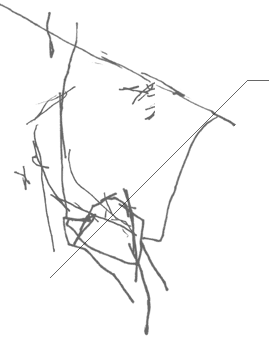Wednesday, February 25, 2026 |
||

|

by Michael Goldberg
Monday August 27, 2001
The New Rolling Stone is... The New Yorker?
Who would expect to find this year's best offline writing about music in The New Yorker?
|
|||
|
I've recently read the best issue I can recall of an offline music magazine, and I'm not talking about Rolling Stone, with more near-naked women on the cover, or Spin, with that guy from Sugar Ray (yawn). The New Yorker has just published "The Music Issue" — the first, I believe — in which you will find deep, thoughtful, provocative writing — really good, quality writing — about the world of popular and not-quite-so-popular music.
The New Yorker! (As a side note, the profiles of Radiohead, Sigur Rós and David Byrne in The New York Times Magazine over the past year or so were also so much better than anything Rolling Stone has published in years that Jann Wenner should be more than just embarrassed.) From Jay-Z To Polly Jean Harvey So it's come to this: the only magazine to run a major profile of Polly Jean Harvey — I mean a 4,000-5,000-word piece in which the writer actually spent some time with Harvey and spoke to those who know her and even got a comment from Björk — is The New Yorker. How crazy is that? Also in the August 20/27 issue: Profiles of Jay-Z (placing him within the larger context of rap), Radiohead (placing them within the larger context of rock and pop music), Kurt Cobain (Robert Christgau reviewing the fascinating new book by Charles Cross, "Heavier Than Heaven") and bluegrass master Ralph Stanley. Not to mention a stunning photographic "Portfolio" of the hip-hop world by Martin Schoeller, a one-page "Sketchbook" by R. Crumb and an essay by author/music critic Nick Hornby. Good stuff, all! I've just about read the issue cover to cover. I began at the back, with a piece by Hornby called "Pop Quiz," in which he sits down and listens to the 10 best-selling albums in the United States "according to the July 28, 2001, issue of Billboard." The results are almost predictable, but that doesn't make Hornby's piece uninteresting. In the end, he reaches the same conclusion many of us came to some time ago. "I shall, when I have recovered my strength, creep back to my little private Top Ten," writes Hornby, "which consists of penniless artists like the Pernice Brothers and Joe Henry and Shuggie Otis and Olu Dara, who make music full of thoughtful, polite ironies and carefully articulated cynicism and references to our glorious heritage. But I won't kid myself that it's pop music — not anymore." 'Just Set Me Alive' Given what I imagine about The New Yorker's probable readership, I guess it's somewhat daring to cover Radiohead and Harvey. Certainly I have no problem with the writing or the analysis. If you start reading these pieces, you'll find them impossible to put down; they read almost as well as these artists' music sounds. My one ultimate problem with the issue is that so many words are devoted to artists about whom so many words have already been written. Nothing wrong with that, but why not a piece about Autechre, or Warp Records? Why not have a reporter look at the new underground? There are so many good artists working below the radar these days. It seems kinda sad that The New Yorker devoted so much energy to putting together this issue, and yet couldn't really step out and take some chances. But then, we are talking about The New Yorker. My favorite bit in the whole magazine is a quote from Harvey, who articulates so well both what I want from art, and the impact I hope my own "art" — writing, photographs — sometimes has on those who come in contact with it: "All my life, when I've been to see bands play, this is what I look for — I want to watch someone who's going to shock me, stun me, make me feel scared, make me feel happy, just set me alive. I want to see someone who's going to make the hairs on my arms and neck stand up, and when I see an artist like that it's unbeatable. So that's always been what I've aspired to, to be able to set people alight in some way." |
||||